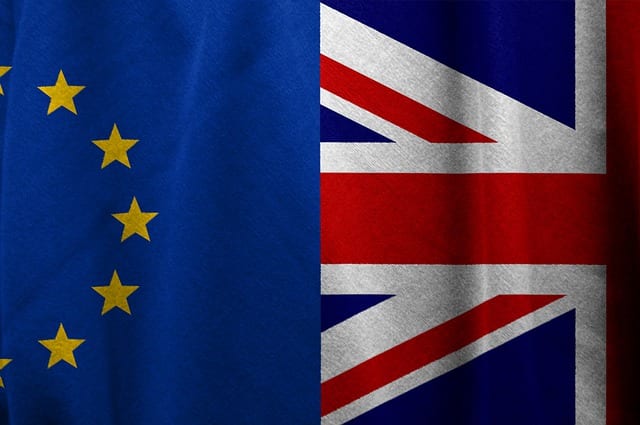Brexit Update 5 October 2020 by Camilla Call, Brexit Advisor
What was scheduled to be the final round of formal UK-EU negotiations concluded last week with significant gaps remaining; however, the two sides are said to have fresh hope that an agreement can be reached so have scheduled a further month of talks. We heard of a number of bleak outlooks for the UK following Brexit on matters concerning crime and data, trade within aerospace, chemicals and pharmaceuticals industrials and potential tariffs for British car manufacturers. On a positive note, it sounds like some progress has been made in the talks and that both sides are still wanting and trying to agree a deal.
Counting down to the end of the transition period, the British Chambers of Commerce (BCC) is hosting free webinars at key milestones to help businesses understand and prepare for the changes and understand the jargon and complexities of customs procedures. The next one is taking place 16 October and marks 75 days left of the transition period. Liam Smyth, customs expert at the BCC, will guide businesses through the complexity of changes in our import and export processes, systems and controls from 1 January 2021.
Free to attend for members and non-members, book here.
Former security commissioner Sir Julian King shared his concerns on not agreeing a deal and the risk to fighting terrorism and serious crime (Guardian 29 September): “UK [intelligence] data that was held in EU systems could – indeed would – be deleted, if there was no data adequacy arrangement covering how you share data”. He stated that no deal would also mean the UK would lose access to databases such as the European Criminal Records Information System (ECRIS). Sir John Scarlett, a former boss of MI6, shared similar views and cited a number of attacks that had been reliant upon data sharing across borders and the ongoing threat of jihadist extremists.
The Independent reported on 30 September that three key leaders from the aerospace, chemicals and pharmaceuticals industries said trade will be a “day to day struggle” following Brexit and none could state a reason for welcoming the end of the transition period. Neil Hollis, of BASF, cited £1bn of new registration costs from the UK pulling out of the EU database, REACH, in favour of its own regulation, meaning chemicals could disappear from the UK market. Paul Everitt, Chief Executive of ADS Group, the aerospace trade organisation, criticised the decision to pull out of the European Union Aviation Safety Agency, which certifies products, arguing continued membership had been “negotiable”. He said that trade would struggle but would continue “at whatever cost it has to bear – but that obviously shapes and impacts on people’s future investment plans”.
A three year transition period for European fishing fleets was offered by Britain in the negotiations, as shared by the Guardian on 30 September. The UK wants to replace the Common Fisheries Policy with “zonal attachment” which would significantly increase catches for British fishing fleets. The UK currently receives a fixed share from its economic zone based within common EU waters. The proposed system would see the UK and EU agree on the percentage of shared stocks attached to each of their European economic zones and catch quotas would be in line with this. One senior EU diplomat said “We have a long way to go but if the other problematic issues can be sorted, it doesn’t look like fisheries will stand in the way of an agreement”. In related news, the UK signed its first independent fishing deal for 40 years (with Norway) and involves annual negotiations on share of catch, something rejected by the EU.
We heard on 30 September (Guardian) that with or without a deal, British car manufacturers could face higher export tariffs after the EU rejected an argument that components from Japan used on UK assembly lines should be considered British. This is due to the EU rejecting the idea of “cumulation”, under rules of origin, which would class vehicle parts sourced in non-EU countries as British. This goes back to the debate on whether the British car industry is manufacturing or assembly. Typically, to qualify as British after Brexit, products must have about 60% local parts or ingredients by value. Even with a deal and zero tariffs on exports from Britain, vehicles that do not have enough British components will typically attract a tariff of about 10%, making them less competitive than vehicles sourced in the EU.
The EU launched legal action against Britain’s Internal Market Bill on 1 October, as reported by Reuters. While this could lead to large fines it could take years to be finalised, but in the meantime the government now has one month to reply to a formal letter of complaint from the European Commission. It’ll assess if the answer is satisfactory and can then request that the UK falls back in line. If that fails, it can sue at the Luxembourg-based European Court of Justice.
Progress has been made during the UK-EU negotiations but significant gaps remain and both sides are still calling upon the other to compromise (Independent 3 October). Boris Johnson and Ursula Von der Leyen, president of the European Commission, have called for the chief negotiators, David Frost and Michel Barnier, to “work intensively” to bridge the gaps which remain on the ongoing sticking points, namely governance and fisheries. BBC provided a similar overview and shared comments on fisheries from David Frost stating the gap was “unfortunately very large”. Michel Barnier raised concerns with the UK’s commitment, or lack of, towards climate change. Following this, it was confirmed that the two sides have agreed a further month of negotiations (Guardian 3 October) as they had fresh hopes that an agreement could be reached.
Dorset Chamber delivers a free of charge Brexit advice service to all businesses, funded by BCP Council and Dorset Council. For information and advice please contact us at gateway@dcci.co.uk / 01202 714800 or visit dorsetchamber.co.uk.
